IN THE FINAL PART OF HER SERIES, PAINTING TUTOR ANN WITHERIDGE EXPLORES HOW A KNOWLEDGE OF MATERIALS CAN ENHANCE YOUR WORK

While the most important skill is our own hand using the tools, the correct equipment can greatly facilitate our vision. A first-hand knowledge of art materials – properties and compounds of paints, priming and stretching canvases, brushes and so on – is an integral part of any artist’s education.
BRUSHES
These come in many shapes, sizes and varieties: flats, filberts, rounds, fans and brights (short flats). The types of hairs are equal to the variety of shapes, from bristle and synthetic to sable and mongoose. A bristle is usually used for the block-ins and alla prima work, whereas a sable is suited for glazing. The most traditional is a hog filbert. A long handle helps you stand at a distance from your canvas. Joaquín Sorolla used brushes up to three feet long. Rosemary & Co has a 24-inch handle, which is ideal for perspective and standing at a distance.
Before the invention of brushes, artists used bamboo sticks, feathers and quills. Nowadays we have an extensive range of brushes from which to choose. At London Fine Art Studios, where I teach, we use Rosemary & Co Artists Brushes. They are handmade in Yorkshire using the best materials, and are the most durable. For beginners, I recommend Series 47. These are quality hog brushes, but also inexpensive. As you grade up, I would suggest you move on to the ivory long filberts. These hold a lot of paint, as well as being sturdy and long lasting. For a treat, buy a few Masters’ Choice mongoose brushes, but only once you have learned to care for brushes. Many artists like using flats, both short and long. I like rounds. The shape of your brush helps define your calligraphy but it is best to start with filberts, which are the most classic shape, before moving on to a brush that might dictate style.
THE PALETTE
Denne historien er fra October 2017-utgaven av Artists & Illustrators.
Start din 7-dagers gratis prøveperiode på Magzter GOLD for å få tilgang til tusenvis av utvalgte premiumhistorier og 9000+ magasiner og aviser.
Allerede abonnent ? Logg på
Denne historien er fra October 2017-utgaven av Artists & Illustrators.
Start din 7-dagers gratis prøveperiode på Magzter GOLD for å få tilgang til tusenvis av utvalgte premiumhistorier og 9000+ magasiner og aviser.
Allerede abonnent? Logg på
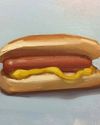
Still life IN 3 HOURS
Former BP Portrait Award runner-up FELICIA FORTE guides you through a simple, structured approach to painting alla prima that tackles dark, average and light colours in turn
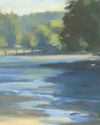
Movement in composition
Through an analysis of three masterworks, landscape painter and noted author MITCHELL ALBALA shows how you can animate landscape composition with movement
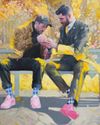
Shane Berkery
The Irish-Japanese artist talks to REBECCA BRADBURY about the innovative concepts and original colour combinations he brings to his figurative oil paintings from his Dublin garden studio
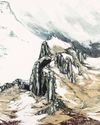
The Working Artist
Something old, something new... Our columnist LAURA BOSWELL has expert advice for balancing fresh ideas with completing half-finished work
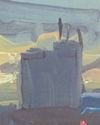
Washes AND GLAZES
Art Academy’s ROB PEPPER introduces an in-depth guide to incorporating various techniques into your next masterpiece. Artwork by STAN MILLER, CHRIS ROBINSON and MICHELE ILLING
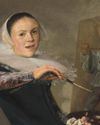
Hands
LAURA SMITH continues her new four-part series, which encourages you to draw elements of old master paintings, and this month’s focus is on capturing hands

Vincent van Gogh
To celebrate The Courtauld’s forthcoming landmark display of the troubled Dutch master’s self-portraits, STEVE PILL looks at the stories behind 10 of the most dramatic works on display
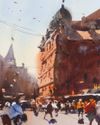
BRING THE drama
Join international watercolour maestro ALVARO CASTAGNET in London’s West End to paint a dramatic street scene
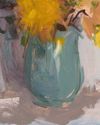
Serena Rowe
The Scottish painter tells STEVE PILL why time is precious, why emotional responses to colour are useful, and how she finds focus every day with the help of her studio wall

Bill Jacklin
Chatting over Zoom as he recovers from appendicitis, the Royal Academician tells STEVE PILL about classic scrapes in New York and his recent experiments with illustration